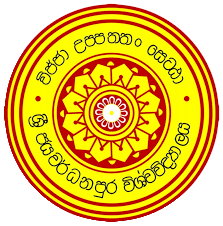K.B.G.S.K.Gamalth.
Ideological Paradox of Practices of Principles of Good Governance in Local Government Institutions in Sri Lanka. Scientific Research Journal (SCIRJ) [Internet]. 2016;Volume 04(05):18-26.
Publisher's VersionAbstractAbstract: Ideological Paradox of Practices of Good Governance in Local Government Institutions in Sri Lanka Local government is core stone of the democracy and development of the given country. Global trend of the local government has been rapidly changed and have adopted principles of good governance in their local institutional systems in the world. Local government system in Sri Lanka has to be changed with parallel to global trend in term “Good Governance”. Nature of Local government is significant regarding determine shape and nature of the democratic political culture of the given society as whole. Global objective of the local government is to archive millennium goals by adopting principles of good governance in practices. Sri Lanka is democratic country with consist their own local government system since long historical time line. One of the main purposes of this local government system was to enhance democratic practices by adopting universal trends such as practical aspect of good governance and deliver rapid and quality service for the ordinary citizens for their social wellbeing. Yet, recent trend has emphasized that most of local government institutions has been reflected lack of adopting and practices of good governance principles with regard quality and accountable services in their institutional practices. Why? The overall objective of this paper is to explore the main reasons behind the failure of good governance in practices of existing local government institutions. This research, specially, focused on practices of good governance in local sphere. As a methodology, secondary data has been applied to gathering facts and information regarding content analysis. Therefore, global literature has been accessed for gathering information. Main scholarly writings and interpretations and arguments have been reexamined in this paper. There are many reasons has been recovered with regard failure of good governance in practices. Specially, pro nationalistic ideological influences and party dominations have been impact on practices of good governance in local government functions and services. Grass root social composition and elite dominations has been manipulated local institutional system and their functions. Weak civil society and their activities have been created a favorable environment for the corrupt oriented local institutional system. Also, electoral system and behavior of the elected people have negatively impacted on good governance of the local government institutional system in Sri Lanka. Index Terms: Nationalistic Ideology, Weak Civil Society, Global Trends, Good Governance, Local Government Institutions.
K.B.G.S.K.Gamalth.
Social Movements, Power Politics and Politicization of Buddhist Priests in Sri Lanka. IOSR Journal Of Humanities And Social Science (IOSR-JHSS) [Internet]. 2016;Volume 21 (03):1-13.
Publisher's VersionAbstractAbstract: The main objective of this paper is to explore how politics was crucially influenced on change of the spiritual behavior of the Maha Sanga (Bhikku) towards political practices in the pre and post- independence society in Sri Lanka. The trend of the politics in Sri Lankan society is becoming more complicity because Buddhism which is the main religion of the majority people of the Sri Lankan society have crucially impact on practice of the politics . Buddhism, it is very strongly called as a spiritual religion which has appeared for the people to emancipation from the bad secular social practices and beliefs. Further, since Buddha’s Parinibbana (attain to spiritual world) it has been maintained and sustained by the Maha Sanga (Bhikku) which are Buddha’s Dharma school. Therefore, Sanga community, they have strong ethical and spiritual objectives than secularized desires which base on Buddha’s teaching. Sri Lanka is one of the countries which have been practicing Theravada Buddhism as a spiritual religion by their Sanga Community. Therefore, Maha Sanga has strong spiritual objectives than secularizing their day to day social practices. There are nothing some evidence in Buddha’s teaching on Maha Sanga regarding political involvement on statehood or politics, yet there’re rapid trends and evidence have been shown in contemporary politics in Sri Lanka that is political involvement of the Sanga community regarding regimes change so far, Why? There are many scholars have done many research’s on Buddhism and politics in Sri Lanka but the difference between of those researches and this research, this research will try to find out the basic socio, economic and cultural factors which caused to motivated Sanga community regarding interfering practical politics in pre and Post-Independence politics. Discourse analysis which is one of the post structural methods of scientific inquiry in social science research will be applied as a major research method in this research. Therefore, previous discourses and arguments which have created by scholars will be critically re-interpreted and re-produced in this research. Further, final output of this research can be shown that during the period of pre and post-independence that state sponsorship and behavior of the rules has been impact on maha Sanga and their behavior regarding practical; politics in Sri Lanka. Emphasized facts and ideas of this research will be opened new room and will empower to researchers who are interest to doing similar research in same research area, Key words: Buddha’s teaching Maha Sanga, Secular practices, Spiritual Religion, Social Movements, Power Politics,
